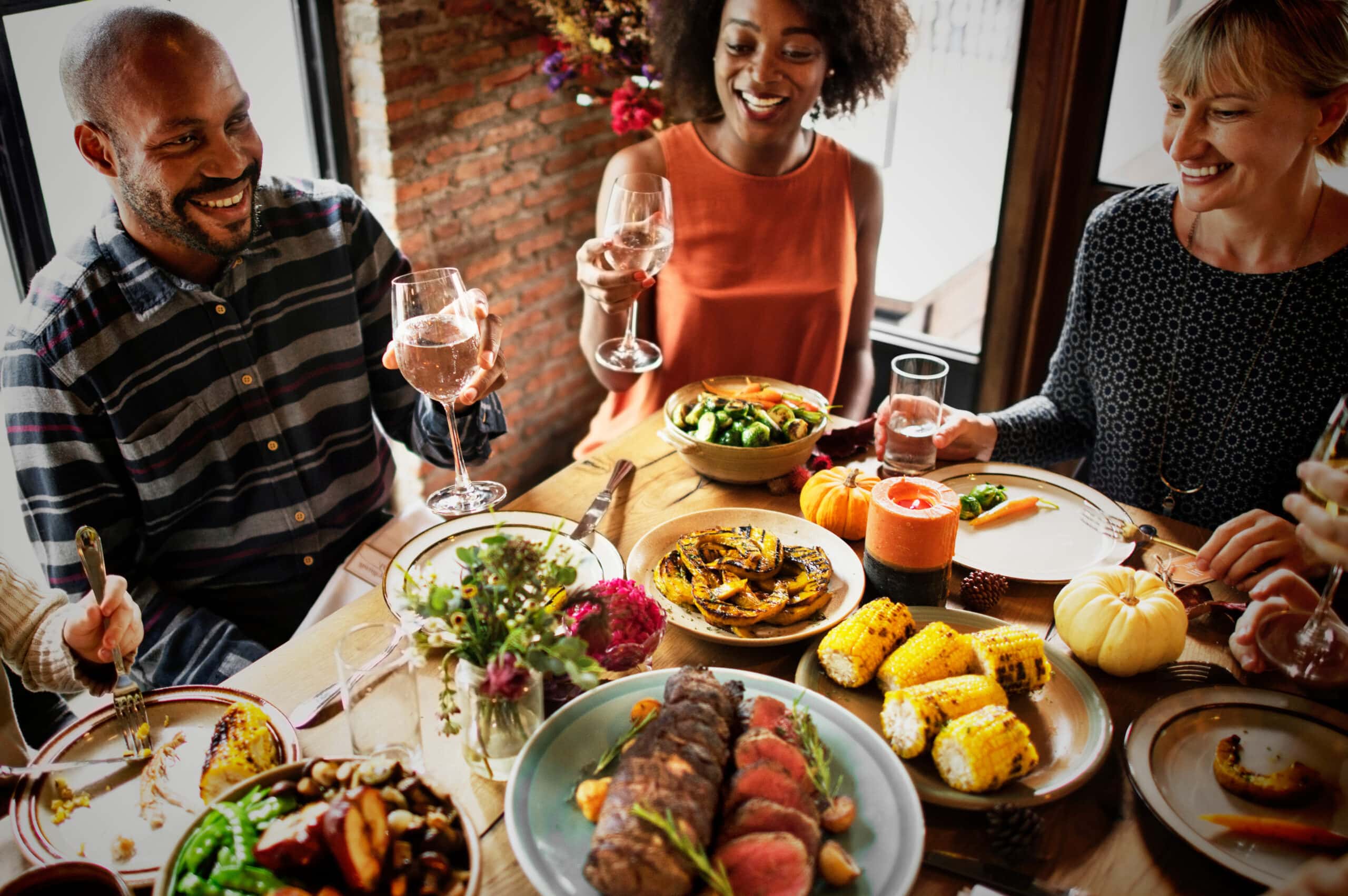Cultivating an ‘attitude of gratitude’ in the era of Brexit and austerity might seem near impossible. How do we say thank you or count our blessings when the world around us seems completely chaotic?
In many respects, you would be right about the challenge of being thankful. However, many authoritative and intelligent voices are saying that being thankful is one of the best ways to increase your happiness.
Happiness and an attitude of gratitude
Dr Robert A. Emmons and Dr Michael E. McCullough are two psychologists leading the field of thankfulness and gratitude research. One of their studies found that after only 10 weeks, an attitude of gratitude left participants feeling more optimistic and better about their lives.
Deciding you want to have an attitude of gratitude is a good place to start. But that in itself is unlikely to improve your outlook on life. Waking up and just saying ‘I’m thankful for a sleepless night worrying about money’ or offering a superficial ‘thank you’ to an irate and patronising customer will not shift the needle on the gratitude meter.
An attitude of gratitude depends on whether you really mean it or not.
How to be happier, less depressed and more satisfied with life
Research shows that people with a genuine attitude of gratitude are happier, less depressed, less stressed and more satisfied with their lives and social relationships. The Roman philosopher Cicero said: ‘Gratitude is not only the greatest of the virtues but the parent of all others’. A sentiment which echoed one of our previous articles discussing gratitude as one of the Character Strengths and Virtues that contribute to Happiness (see ‘How to be Happy, Part 2’).
November is an appropriate month to think about an attitude of gratitude. Later this month it will be Thanksgiving Day in the USA. While we Brits don’t celebrate Thanksgiving, there are some similar festivals here in the UK.
Many churches hold Harvest Thanksgiving services and less well known is that Guy Fawkes Day on November 5th started as an annual Day of Thanksgiving for the failure of the Gunpowder Plot in 1605.
But what have we got to be grateful about?
It is a tempting mindset to bemoan the state of the world. With the seemingly never-ending Brexit negotiations and constant cuts to public services, surely things are as bad as they have ever been. So what have we got to be grateful for?
This is the way the story we tell ourselves goes but, according to scientist Steven Pinker, there is extensive evidence that we are healthier, wealthier, wiser, safer and happier than ever before.
Imagine what it was like to live in the early 1900s and you will recognise the progress we have made in just 100 years. We take central heating and electricity for granted and need not worry about diseases like tuberculosis and influenza killing thousands of people. On its own, this presents plenty of material for our attitude of gratitude.
An attitude of gratitude is good for relationships
According to the charity Action for Happiness, gratitude sits at the heart of relationship building. Psychologist Jonathan Haidt calls it our ‘hive mentality’. We are as much like bees as we are like apes with an instinct for cooperation. Gratitude plays a role in oiling the machinery of the way we relate to each other. Remember how you felt the last time someone failed to say ‘thank you’ for one of your good deeds for a good example.
When we show appreciation for others we are acknowledging how much we value them and their efforts. A simple ‘thank you’ helps to build connections and overcome barriers to working together. As French author, Marcel Proust said: ‘Let us be grateful to people who make us happy, they are the charming gardeners who make our souls blossom.’
Is an attitude of gratitude just for the deluded?
You may say that practising an attitude of gratitude encourages delusional thinking and make us more likely to be duped by the unscrupulous. According to Steven Pinker, this sort of attitude leads to the view that we have no control over our lives and are at the whim of fate.
It is much more realistic to think that we have control over (at least some of) our actions. Therefore saying ‘thank you’ is an acknowledgement of the benefits life gives us rather than taking things for granted.
An attitude of gratitude is something that can be practised. Professor Haidt suggests we focus on those relationships which we value most. Write a letter to someone close thanking them for everything they’ve done for you. Or encourage acts of gratitude by being thoughtful to your nearest and dearest. Even if you find the thought a little bit embarrassing.
Try an attitude of gratitude. It might be a tricky thing to master but we call all gain from it.
Counselling and support services
Practising an attitude of gratitude can be an effective way of improving our outlook on life. Sometimes that is not enough and the issues we face in life need more than a change of attitude.
At The Spark, we have been providing counselling and support to individuals, couples, families and children for over 50 years. Our aim is to help clients to better understand their emotions and experiences, and to find ways to deal with them.
Find out more information about The Spark and our counselling services for individuals, couples and families. Contact us via our online form or freephone 0808 802 2088 to talk about how counselling could help you.

